Urban Farming: The Future of Growing in the City
Urban Farming: The Future of Growing in the City
Urban farming is more than just a buzzword — it’s a powerful solution for bringing fresh, locally grown produce right into the heart of the city, similar to practices seen in Paris, France, and the UK. With urban populations rising and green spaces shrinking in countries like Germany, people are turning to innovative growing methods like hydroponics and victory gardens to make the most of small spaces, advance sustainability, and support sustainable agriculture while taking control over their food supply, as endorsed by the United Nations Development Programme’s sustainable development goals.
In this blog, we’ll explore what urban farming is, why it matters, how hydroponics fits into the picture, and how you can get started with your own home or community urban farm.
What Is Urban Farming?
Urban farming, also known as urban agriculture (UA), refers to growing food, including livestock, and cultivating a variety of types of plants in city environments. According to the U.S. Department of Agriculture (USDA) and the Food and Agriculture Organisation of the United Nations, it’s a broad term that covers everything from balcony herb gardens and rooftop vegetable patches to urban agriculture sites such as community farms and community allotments, indoor vertical farming systems, and high-tech hydroponic systems, which are among the best ways to maximise food production in urban areas.
The key feature of urban farming is that it brings urban food production closer to where people live, contributing to climate change mitigation and providing benefits for local authorities. This shortens supply chains, reduces food miles, and provides fresh, nutritious produce in local urban communities.
Why Urban Farming Is Growing
- Limited Space: Cities are tight on growing space, so innovative solutions like vertical growing, wall planters, and small-space systems have emerged.
- Food Security: Growing food locally increases resilience against supply chain issues, price spikes, and food shortages.
- Community Benefits: Shared urban farming projects bring neighbours together, create educational opportunities, and reconnect people with nature.
- Better Taste, Better Nutrition: Locally grown produce is often fresher, tastier, and more nutritious because it doesn’t need to travel long distances.
The Role of Hydroponics in Urban Farming
One of the most powerful tools for urban farmers is hydroponics — a soil-free growing method that uses nutrient-rich water solutions to feed plants directly.
Why Hydroponics Is Perfect for Urban Growers
- Maximising Limited Space: Hydroponics allows you to grow vertically or in stacked systems, making it ideal for balconies, rooftops, small rooms, or even unused indoor spaces.
- Water Efficiency: Hydroponic systems use up to 90% less water than soil growing, thanks to recirculation and minimal runoff — a major advantage in urban areas where water conservation matters.
- Faster Growth and Higher Yields: Plants get nutrients directly at the root zone, leading to quicker growth and often bigger harvests — ideal for making the most of small spaces.
- Cleaner, Easier Growing: Without soil, there’s less mess, fewer pests, and lower risk of disease — making hydroponics a clean, low-maintenance choice for urban living.
- Year-Round Production: Combine hydroponic systems with LED grow lights and you can grow fresh produce indoors all year, independent of seasons or outdoor conditions.
Popular Hydroponic Systems for Urban Farms
- Deep Water Culture (DWC): Plants are suspended with roots directly in nutrient solution — simple, affordable, and great for beginners.
- Nutrient Film Technique (NFT): A thin stream of nutrients flows over roots inside a channel — perfect for leafy greens and herbs.
- Drip Systems: Nutrients are delivered directly to the root zone via drip emitters — scalable and flexible for different setups.
- Vertical Systems: Plants are stacked in columns or towers, making excellent use of vertical space.
- Aeroponics: Roots are misted with nutrient solution for maximum oxygen access and rapid growth — a more advanced system for high-performance growers.
How to Start Urban Farming at Home
- Assess Your Space: Determine how much room you have and whether it’s indoors or outdoors. This will help you choose the right system.
- Choose Your Setup: For small balconies or tight indoor spaces, a compact DWC or NFT system may be best. For larger spaces or ambitious projects, consider vertical towers or automated drip systems.
- Select Crops: Leafy greens, herbs, and small fruits are all great for hydroponic urban farming. They grow quickly and respond well to indoor environments.
- Optimise Your System: Use timers, pH meters, EC testers, and nutrient calculators to maintain consistent, healthy conditions.
- Expand as You Learn: One of the best parts of urban farming is scalability. Start small, learn as you go, and add on when you’re ready.
Why Urban Farming Matters
Urban farming isn’t just a hobby — it’s part of a larger movement toward sustainability, self-reliance, and food security in horticulture through cultivation. As cities grow, the ability to produce fresh food close to home becomes increasingly valuable, particularly with the use of fertiliser and compost. By embracing urban farming and tools like hydroponics, growers can reduce environmental impact, strengthen local food systems, and enhance soil quality while enjoying better-quality produce.
Hydroponics gives urban farmers the unique ability to bypass many of the space, soil, and climate challenges of traditional growing. It allows anyone — from hobby growers to commercial urban farms — to produce reliable, healthy harvests right in the heart of the city.
Ready to Get Started?
At Growell, we offer a wide range of hydroponic systems, nutrients, lights, and accessories to help urban farmers thrive. Whether you’re starting your first balcony system or expanding a larger indoor setup, our expert team is here to help you succeed.
Whether you want to shop in one of our six stores or order with us online, we've got you covered with the biggest range of hydroponics gear at fantastic prices.



